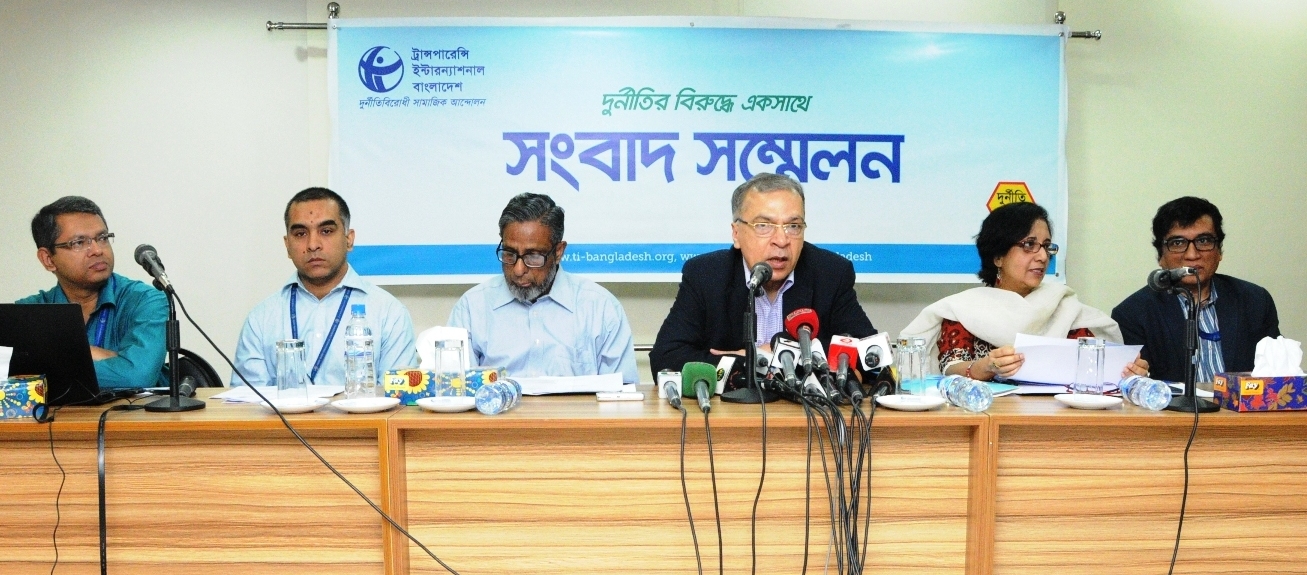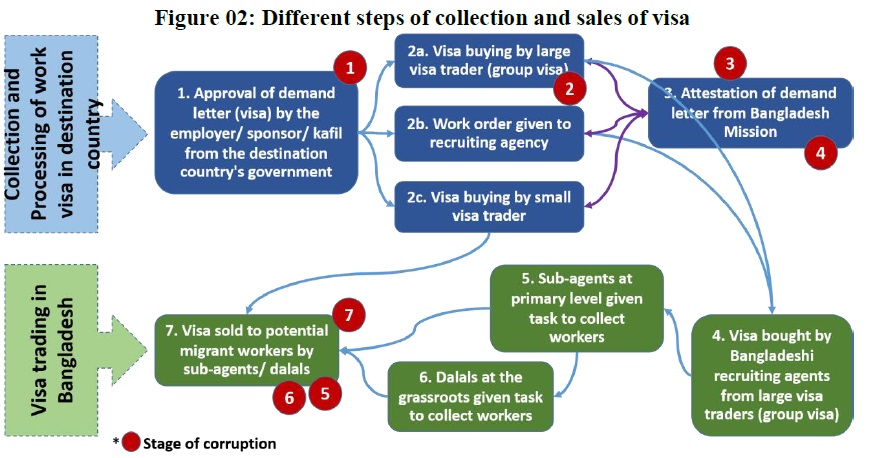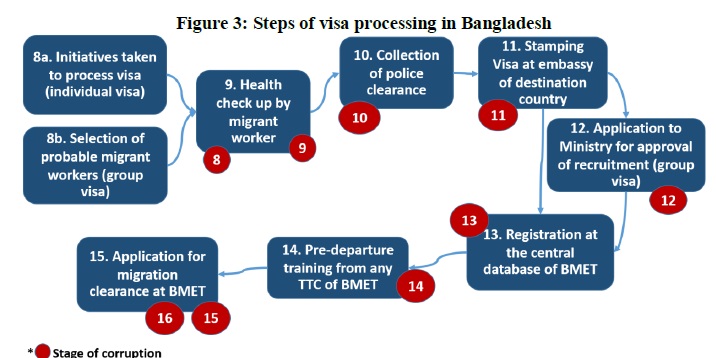Published: 09 March 2017
In spite of the government’s sincere efforts, Bangladesh’s labour migration sector still suffers from many governance challenges ranging from legal, institutional and procedural limitations, coupled with rampant corrupt malpractices by intermediaries, causing immense sufferings to millions of job-seeks who have been defying all odds in search of a better future abroad.
This dismal picture emerged from a study of Transparency International Bangladesh (TIB) titled: Governance in the migration process: Challenges and the way forward’, released on 9 March at a press conference in Dhaka.
Identifying a total of 16 types of irregularities and examples of corruption, the researchers’ demanded amendment to existing laws, enhancing capacity of relevant institutions and disclosure of migration-related information to wider audience to ensure good governance in the labour migration process.
Jointly produced by Manzur-e Khoda, Programme Manager, and Shahzada M Akram, Senior Programme Manager of TIB, the study contains analyses of data and information collected during May 2016 to January 2017 from primary and secondary sources. It identified a number of positive initiatives taken by the government in the labour migration process. These included, among others:disbursement of loans from Expatriate Welfare Bank for meeting the cost of migration; introduction of fingerprint facilities for prospective migrant workers from Chittagong, Coxes Bazar, Comilla, Sylhet, Rangpur, Jessore and Barisal; the process of issuing no-objection certificate (NOC) to the families and relatives of the expatriates, and issuance of smart cards from Chittagong and Sylhet, in addition to Dhaka.
Researchers made it clear that the study findings cannot be generalized and applicable to all the stakeholders equally since it was not based on a survey. However, the findings portrayed an indication of the existing situation of this sector.
The study identified a number of legal, institutional and procedural governance challenges in the labour migration process. The legal framework of migration has not clearly spelt out some important issues like complaint mechanism, worker selection, compensation etc. Moreover, it has been difficult to enforce the existing laws in a proper manner due to the obscurity and limitation in the legal frameworks. On the other hand, there are deficiencies of capacity in relevant stakeholders to ensure oversight and control in the process of labour migration.
A major cause of existing problems, corruption and irregularities in the labour migration process is the institutional limitation in the relevant agencies. Lack of capacity of the government agencies involved with the labour migration has been obvious. The budgetary allocation for the sector is inadequate on the one hand, and the money allocated cannot be fully utilised, on the other. There is also shortage of manpower in both private and public agencies engaged in labour migration.
The study found that the sector as a whole is dependent on dalals (brokers).Thus, a direct contact between the licensed recruiting agents and the worker willing to migrate is almost absent. The migrant workers are mostly dependent on brokers for information relating to recruitment in abroad and terms of services, migration, processing of migration etc. Similarly, the recruiting agents are also dependent on the brokers to select migrant workers from the grassroots, keep in touch with them, provide assistance in processing visa etc. For these reasons, a significant portion of the migrant workers cannot take receipt for any kind of financial transactions. Such practices make it impossible to preserve documentary evidence of spending for migration. The migration cost has not been fixed for all the countries. Due to lack of documentary evidence the amount that should be provided as compensation in case a migrant worker is cheated, cannot be fixed properly and the migrant worker concerned is deprived of proper compensation.
The process of labour migration in Bangladesh is still long, complicated and uncertain, and mostly Dhaka-based, which is likely to create potential risks of corruption and irregularities. Moreover, the existing process depends mostly on informal and personal dealings. Thus, it creates the room for cheating and depriving the potential migrant workers. There is also less institutional protection to get the compensation in case a worker is cheated. It happens as the transactions are done in an informal manner keeping no documents or evidence. Moreover, the lack of transparency about the work environment, facilities and entitlements of the jobs at the destination countries, VISA/migration cost etc for less educated migrant workers eventually enhances dependency on the brokers. There exists irregularities and corruption in the labour migration process of Bangladesh.
There are allegations that almost every stage in VISA processing entertains unauthorised transaction of money. This situation is instigated by the uncontrolled VISA trading which creates extra expenditure burden over the migrant workers. As a result, Bangladesh is failing to gain the returns from the labour migration at the expected level. High cost in labour migration instigates illegal overseas migration, which leads to putting the workers into a domain where there is a strong possibility to be declared as illegal migrants in the destination countries.
In the press conference, TIB’s Executive Director Dr. Iftekharuzzmanurged the government to formulate a long-term national strategy to establish good governance in the migration sector, the second largest foreign currency earner of the country. He also hoped the government would take the recommendations of TIB report into considerations and take action accordingly.
The nine-point recommendations of the study, among others, are: amendment to the "Overseas Employment and Migrants Act 2013" by incorporating mandatory provisions such as selection of workers, determination of amount of conversation, and payment of compensation; migration at personal initiative should be inserted into the law by making specific criteria (for example-attestation by the labour wing at the Bangladesh mission), and 'one-stop' service should be introduced to offset dependency on recruiting agencies. Other recommendations are: legal provision should be made to include dalals (brokers) as sub-agents or registered agents of the recruiting agencies to bring them under transparency mechanism; strengthen capacity and skills of the labour wings in the countries in terms of budget and manpower; and disclosure and dissemination of migration-related information at the grassroots level to raise awareness for curbing corruption and malpractices.










